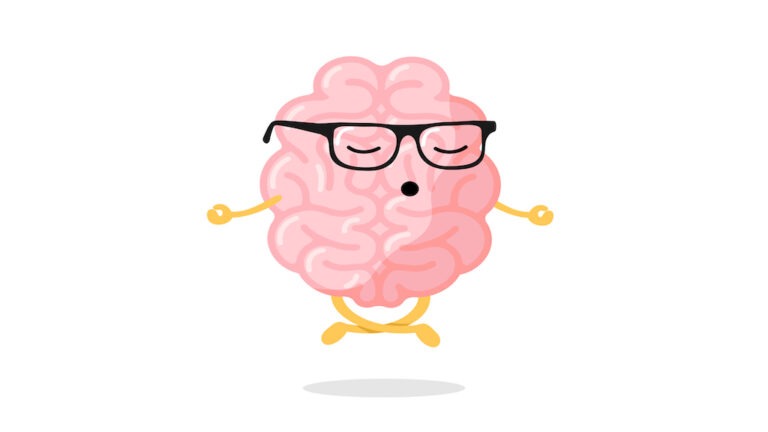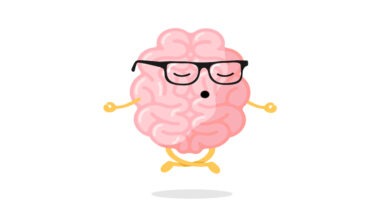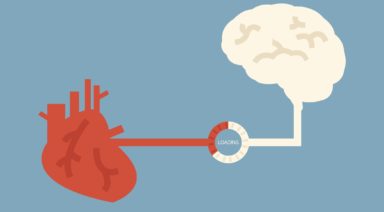7 Tools for Managing Overwhelming Emotions

Let’s face it – sometimes emotions get the best of us. Once we are triggered, it is tough to be in pain and not do something that essentially makes it worse. It’s much easier to numb the pain temporarily, but unfortunately those coping methods tend to have negative consequences. Basically, we get into the habit of choosing short-term symptom relief rather than addressing the core issue. You know what I’m talking about. How many of you have used alcohol to cope with your feelings of stress or sadness? How many of you ended up in much worse pain the next day or, worse, by the end of the night in tears in front of people you don’t quite trust?
Other popular unhealthy coping methods include: TV, drugs, sex, cigarettes, food, gambling, prescription pills, and the ever so popular sweeping-it-under-the-rug method. I must admit these methods are very tempting, but we all know how they end. What’s worse is that we still engage in these behaviors. Why?! Well for one, these unhealthy solutions work very well in the immediate. The second reason is that they are much easier to engage in and usually come with pleasure.
What are we hiding from, though? It’s funny, but when you think about it, we are only hiding from negative emotion. What’s an emotion? Is it going to kill us? Is it going to last forever? Sometimes emotions can feel that they are going to last forever, but the answer is no. All emotions crescendo and then dissipate. They imitate movement like a sign curve. Keeping this in mind would make it a lot easier to navigate our emotions. In order to deal with overwhelming emotions it is helpful to have a tool belt to reach for in times of distress. Here are a few of these less dangerous, and unfortunately, less fun, ways of dealing with these pesky negative emotions:
- Put it in perspective
Sometimes when you take a step back and think about what is really important to you, the problem that you think you are experiencing becomes very small. Ask yourself, “Will I still be in this much pain in one week? A month? One year from now? Will I remember this as significant? When I die do I want to remember this as something I spent a lot of time on?
Death is the ultimate teacher. Life is precious because it is limited. Nothing is worth sacrificing our happiness for. Nothing. It is impossible to control outside events that cause disturbance within, but it is completely in our control to either hang on or let it go. When we cling or feed the negative emotion, it robs us of our limited time on this planet. You are not your thoughts, your emotions, your body, or your things. Do not let death teach you this at the last minute.
- Engage in an act of self love
Many people understand being physically ill and respect it as painful. If you get sick, oftentimes your loved ones will tell you, “You poor thing. Go home and take a hot bath!” But there is a double standard when it comes to being in pain from emotions. If you don’t feel well emotionally, it can be tough to find an empathetic ear. We all get scared to share our emotions at times. We are ultimately afraid to hear, “Suck it up or get over it.” These words do more harm than good. If you are not feeling well emotionally, I challenge you to engage in acts of self-love as if you were physically ill. Go home. Take a hot bath. Sleep. You never know, it might make you feel a little better to take care of yourself. The idea would be to soothe with the 5 senses. Find activities that are soothing to your each of your senses:
- Sight: Look at the sunset
- Sound: Listen to relaxing music
- Touch: Get a massage or go to yoga
- Smell: Aromatherapy in a nice hot bath
- Taste: Eat something that brings up good memories or give yourself that treat you love!
- Put a time limit on it
When we are hurt it is so easy to get lost in the rabbit hole. In the rabbit hole we become the emotions and thoughts that are plaguing us. We ruminate and get lost in trying to solve a problem that is unsolvable. We feed the emotion by believing the catastrophic thoughts that come up like, “I hate him and myself for trusting him. He never liked me and was just using me the whole time. I never want to see him again. I am going to call his parents and tell them what a bad person he is.”
Instead of letting these thoughts come and go we might actually act on them. We feel so horrible that we avoid people, stay in bed for weeks at a time, drink too much, or eat too much. In order to avoid this, put a time limit on it. Tell yourself that you are going to think or talk about this problem for only one hour a day until it is resolved or you come to acceptance. Once the hour is over, choose an activity that is the opposite of the emotion you are feeling to change your mood.
If you are sad, listen to happy music. If there is anger, watch a comedy on TV. If you are stressed and tense, go take a yoga class. Everyone deserves a break from time to time. Do not let one area of your life that is causing you pain engulf your entire world. You have the ultimate control over your happiness.
- Let the negative energy pass through you
Negative emotion is just negative energy. It does not help to squash it down, numb it or avoid it. The only way, is to face it head on and allow it to pass through you. This takes some bravery on your part. You must allow yourself to feel the pain. There are some tools that can help while you do this. You can allow yourself to get the support you need. Oftentimes, it is very difficult to be vulnerable and admit to others that you are having a hard time. In order to move the negative energy through your body it helps to talk to another trusted person. You can also release the energy by exercising, writing in a journal, or simply relaxing your body and letting your preconceived notions of how it “should” be, go.
- Observe the emotion
You are not the emotion or your thoughts. You can take a step back and witness what your thoughts and emotions do when there is a disturbance. Watch the thoughts or self-talk get faster as they ask you to fix them before they become abusive. Watch the emotion crescendo and dissipate. Do not avoid. Avoidance makes the emotion and the thoughts louder. Allow yourself to have the emotion, don’t fight it, and don’t escalate it by falling down the rabbit hole and attaching to the thoughts. Eventually it will pass. You do not really need to do anything for the pain to subside. It will on its own.
By this, I do not mean that you should not deal with your problems. By all means take care of yourself and your responsibilities. Just do not make decisions when you are in a heightened state. Wait until the emotion passes and then solve the problem. You will be able to see much clearer once the intensity has lessened.
- Delay, distract, and then decide
This tool, created by Marsha Linehan, is useful in order to inhibit negative reaction to a negative emotion. Many times, if we make a decision in the emotion it will make it worse. Basically, any negative urge or craving lasts for about 20 to 30 minutes. Help yourself by delaying your reaction and any subsequent actions for 20 to 30 minutes with a distraction.
You can go to work, help someone else, go for a walk, take a break from the trigger, read, or watch a movie. Once the time is up, make a pros and cons list as to whether your reaction is worth doing. Usually you will decide not to react the original way you had planned. For instance, slashing your boyfriend’s tires out because he lied to you probably won’t seem like such a good idea once some of the anger has passed.
- Become aware of your physical and emotional vulnerabilities
Sometimes our emotions can get the best of us when we are not feeling well. Become aware of your triggers. Ask yourself if you have any physical or emotional vulnerabilities that are getting in the way of managing your emotions. Some of these vulnerabilities are: hunger, lack of sleep, injury, illness, stress, lack of support, crisis, past trauma, negative core beliefs, etc. If you notice that the current problem is escalated due to one or more of these factors you may want to try to take care of the vulnerability first in order to prevent and manage the escalation of your emotion.
Embrace Your Emotions
My wish for us all is to start viewing negative emotion as an opportunity to practice these new skills rather than allowing the emotion to be a threat to our self-concept or survival. We do not have to fight and we do not need to flee (run or avoid). I hope that one or more of these resonates with you, and the next time you are in the emotion, you can remember to pull this list out of your wallet. Remember that it will pass, it is ok to have the emotion, and above all else you don’ t necessarily need to do anything. Let go and let it pass through you, because it will!
If you would like to learn more please visit or contact me at Good Therapy San Diego.
This article was inspired by The Untethered Soul by Michael Singer
Can Mindfulness and a Psychology Class Make You Happier?

By studying the effects of mindfulness on psychiatric patients, and the pursuit of happiness, can we teach ourselves how to be happier?
The term mindfulness has entered popular culture in recent years, but this ancient Buddhist practice actually began gaining acceptance in western medicine in the 1970s.
The three main tenets of mindfulness are:
- Intention to cultivate awareness
- Attention to what is occurring in the present moment
- An attitude that is non-judgmental
In a recent article for psychiatric times, researchers looked at how mindfulness-based treatments work for psychiatric patients, and how these therapies can enhance and even replace pharmaceutical interventions. They found a wealth of evidence that mindfulness-based therapies have overwhelmingly positive effects on patients.
With mindfulness-based cognitive therapy reducing the rate of relapse rates for patients with major depression similar to that of pharmaceuticals, they also showed reduced anxiety, depression, and increased cognition.
The researchers point out, however, that, “Despite this evidence, pharmacotherapy remains the main treatment option for many patients with mental disorders, although about 75 percent of patients with mental disorders prefer psychotherapy. Researchers recommend implementing mindfulness-based therapies in place of, or in concert with, pharmacotherapy especially as the population grows older and cognitive issues become more common.





































